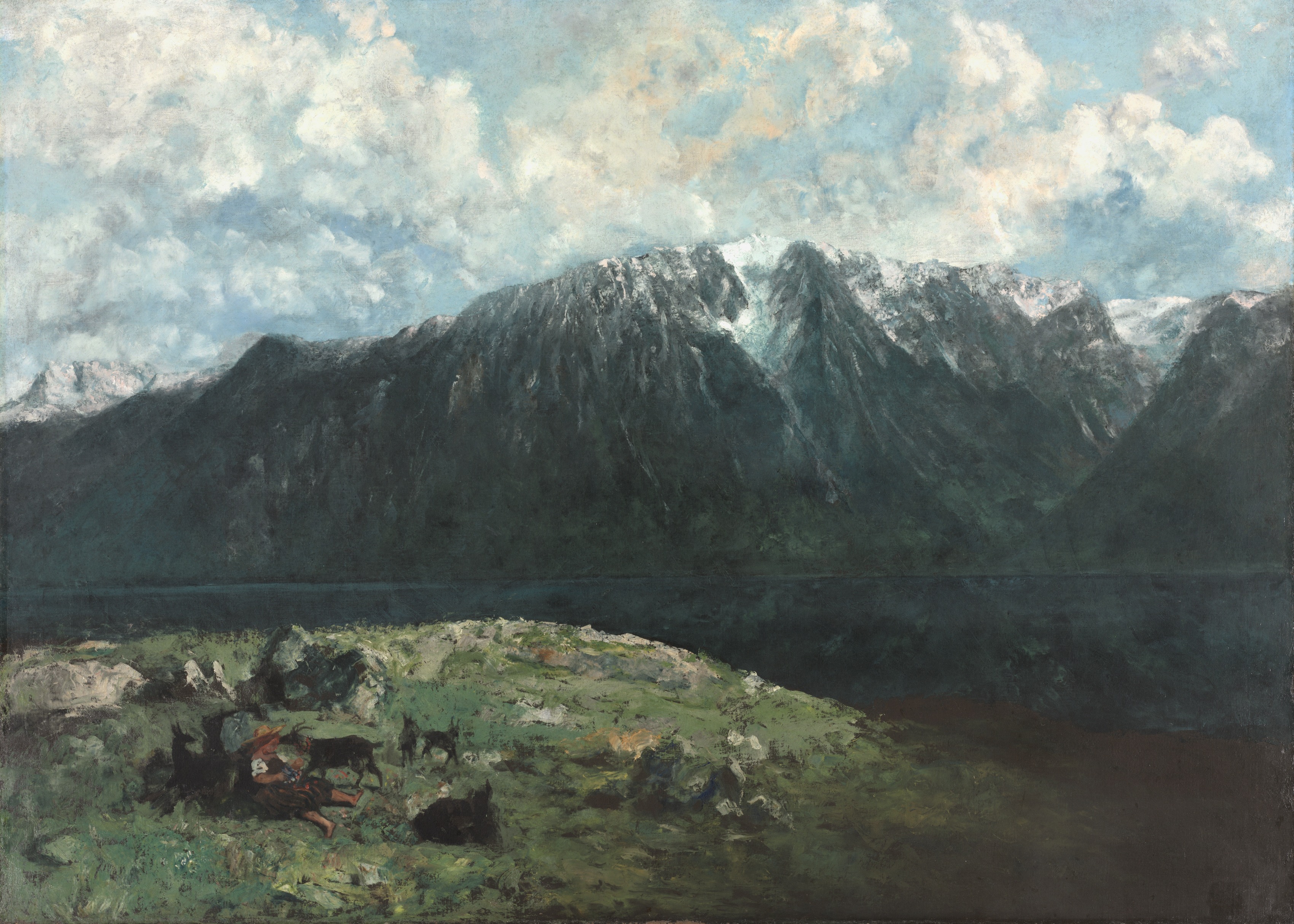ExilesEnd

Gustave Courbet: Panoramic View of the Alps,
Les Dents du Midi (1877) unfinished work
"We gained a garden at the cost of losing that world …"
©2022 by David A. Schmaltz - all rights reserved
When does an exile end? The homecoming just begins the exit, for attachments made out there still hold. The Muse retained her position, so she continued connecting in more or less the same fashion after relocating home. She became a remote worker, just like any other until The Damned Pandemic started lifting. Then, she'd occasionally return, working in borrowed space, back into the workplace she'd inhabited before. Her exile followed her back home, her liberation incomplete until this week when she formally retired, turned in her credentials, and forfeited her computer and phone. Her departure almost seemed like the start of yet another exile as we drove through Golden, a town we'd grown so damned familiar with during the actual exile.
I, too, sensed the continuing connection, my well-practiced role of The Invisible Husband during the exile, continued even after we returned home. I tip-toed around the place during normal business hours while The Muse engaged via video calls. I tried to maintain some semblance of routine, making meals and being supportive, for The Muse had a job. She maintained the financial lifeline that made my work and our lives together possible. She was my patron and I her protector. Our exile continued on a subtler, unequal level. Now she's left that role, retired into a less certain future, no longer beholden to an employer, no longer obligated from nine to five each workday, no longer tasked to contribute. The sudden absence of that controlling presence seems at first more absence than difference, a fresh obligation rife with expectation, just like another exile.
This town, though, the location of the final stage of exile, suddenly seems poison. No longer even our temporary home, no longer where The Muse's employer resides, we have no business here, though we still retain friends and acquaintances, but ones from which we no longer accept obligations. We're not their neighbor now. We will not hereafter drop by for supper or take care of their critters when they're traveling. We will not be frequenting old familiars. I spent part of this final visit of our actual exile, shopping for provisions I cannot acquire at home, a place which sometimes seems far away from civilization. I might not ever pass this achingly familiar way again. I relegate myself to my corner now.
The exile extended our adolescence, for we were forced to learn how to live all over again in each location, like young adults again in middle age. We were unable to rely upon patterns of living developed over previous decades after we found ourselves rudely transplanted into an unanticipated urban environment. We mastered The Metro and The Beltway and shopping in delis. We learned where to source our resources without knowing anyone on the inside, and I believe that we were better for this. We discovered unanticipated worlds and thrived in them, almost pioneers, settlers. Returning home challenges me to update my directory from the one I acquired in my actual adolescence to the one that actually references what's there at hand now, rather like the skill I honed in exile, except there, I didn't have to wrestle with vestigial memories of places no longer there in order to orient myself. Memories seem harder to manage than any actual exile ever was.
I suspect that exiles have long tails. They likely influence long after they end, if, indeed, any ever end at all. The hero never really returns from his journey because his journey changed him into someone else, an other upon return. He cannot shed his experiences, for they shaped and informed him, leaving him unable to muster his former naivety. He knows different, for better and for worse, and it's both a blessing and a curse that he ever comes back home, or attempts to, for home then comes to feel like another exile, this time unbounded by an expectation of ever returning anywhere else, of it ever ending. We will not be back here to Colorado, certainly not on anything like our departing terms, and perhaps never again. The parts of the exile we loved, and there were many, we've abandoned to end the exile, the sole imperative we knew since we were first thrown out of the garden and into the wider world. We gained a garden at the cost of losing that world, a fair deal.


